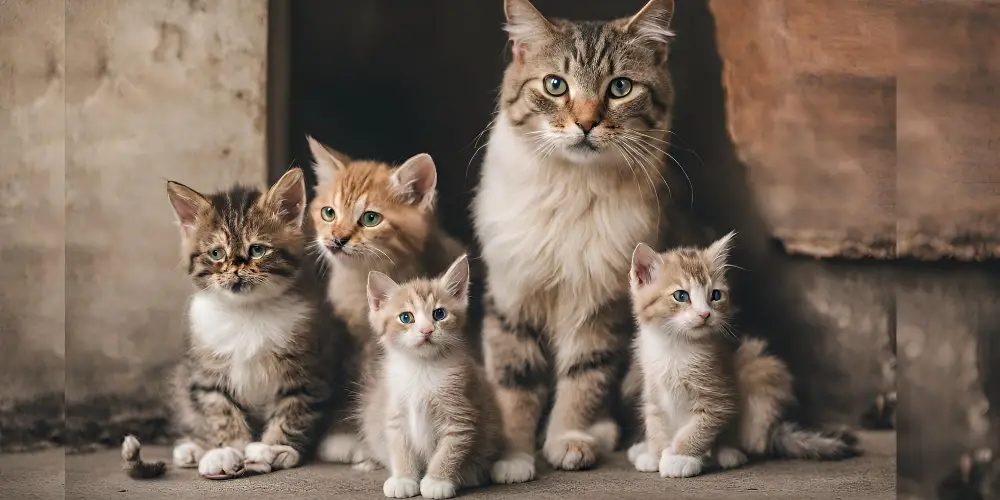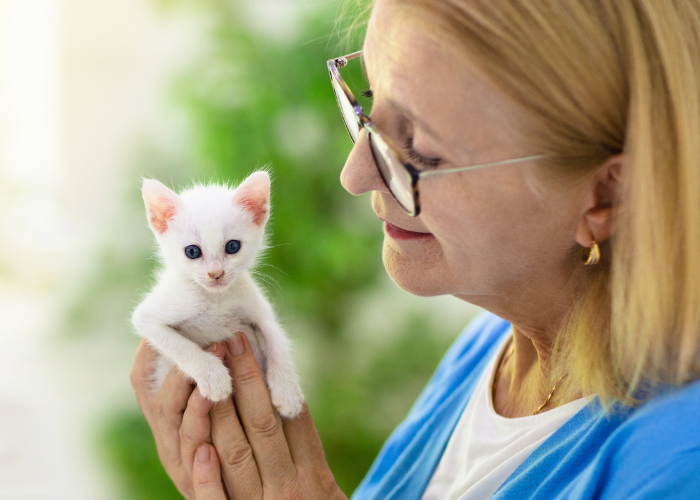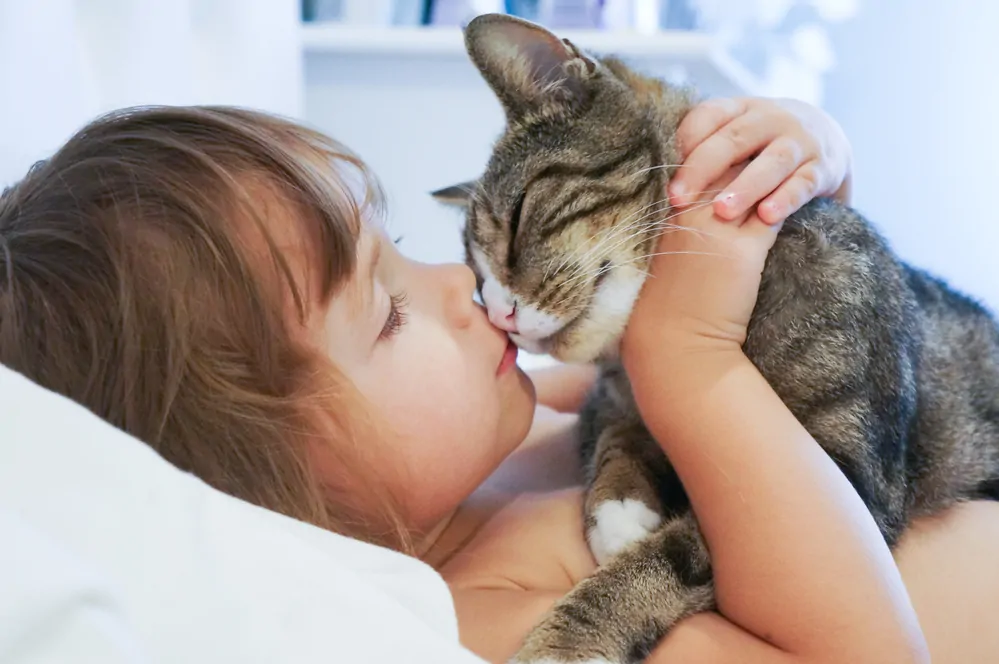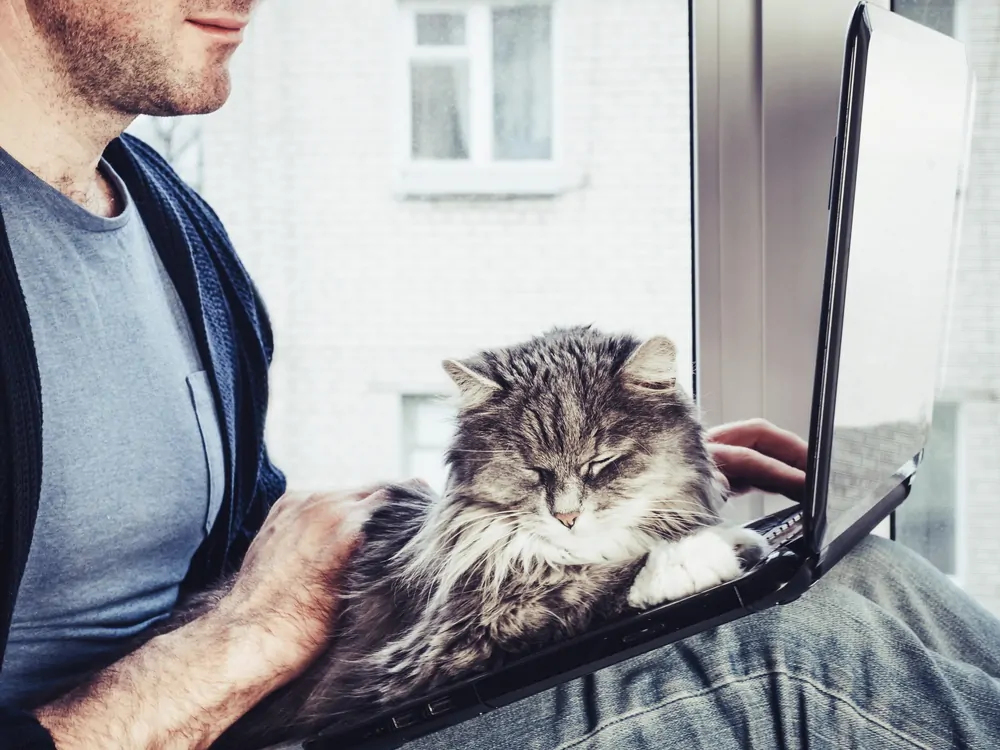A darker side lurks in our feline friends’ seemingly serene world. It might be hard to believe, but sometimes, mother cats kill their kittens.
Why does this happen?
From survival instincts to environmental stress, there are several compelling reasons.
Let’s explore the “7 Reasons Why Cats Kill Their Kittens” to understand this mysterious aspect of cat behavior and what it tells us about the feline psyche.
Common Causes of Infanticide in Cats
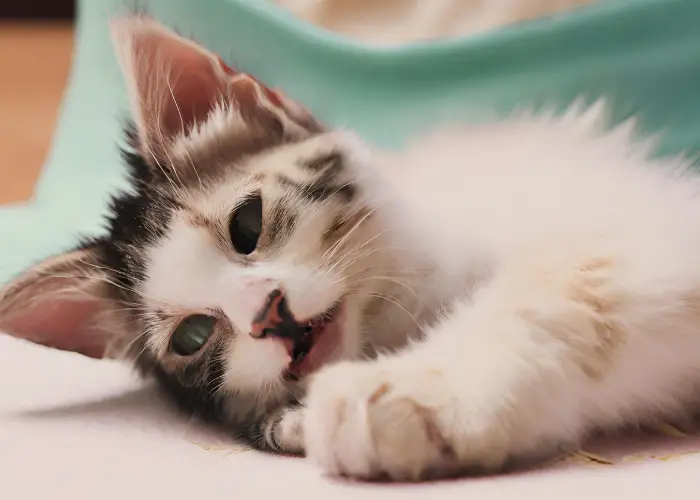
1. Inexperience and Maternal Instincts
Young mother cats, especially those who become mothers for the first time, might not fully understand how to care for their kittens.
This lack of experience can lead to misinterpretation of kittens’ behavior as a threat or overwhelming stress and confusion, resulting in the unintentional harm or killing of the kittens.
2. Stress and Environmental Challenges
Environmental factors like loud noises, the presence of other animals, or even frequent human interference can cause significant stress to a nursing mother.
For instance, a mother cat in a noisy, crowded shelter might become overly protective and aggressive towards her kittens.
3. Health Complications
Health issues such as mastitis (a painful infection of the mammary glands) or insufficient milk production can lead to a mother cat’s inability to nurse her kittens properly.
In some cases, this might lead to the tragic decision to abandon or harm the weaker kittens in favor of the stronger ones.
4. Genetic and Congenital Factors
A mother cat may instinctively cull kittens born with visible deformities or health issues.
This behavior, rooted in a survival instinct, ensures that only the healthiest offspring survive. For example, a kitten born with a severe congenital defect may be unable to feed or move properly, prompting the mother to exclude it.
5. Resource Scarcity and Overpopulation
When resources are scarce, a mother cat may be unable to sustain her entire litter.
As seen in feral cat colonies, a mother may abandon or eliminate some kittens to conserve resources (like milk) for the remaining ones.
6. Psychological Stress
Changes in the home environment, such as moving to a new house or the introduction of new pets, can cause significant psychological stress to a nursing mother.
This heightened stress can sometimes trigger aggressive or harmful behavior towards her kittens.
7. Predation and Territorial Behavior
In multi-cat households or feral communities, male cats might kill kittens that are not theirs to eliminate competition and prompt the female to go into heat sooner.
This behavior is commonly observed in wild or feral cats but can also occur in domestic settings.
Understanding these factors can help cat owners create a safer, more nurturing environment for their pets, significantly reducing the likelihood of such tragic incidents.
Preventing Infanticide in Cats
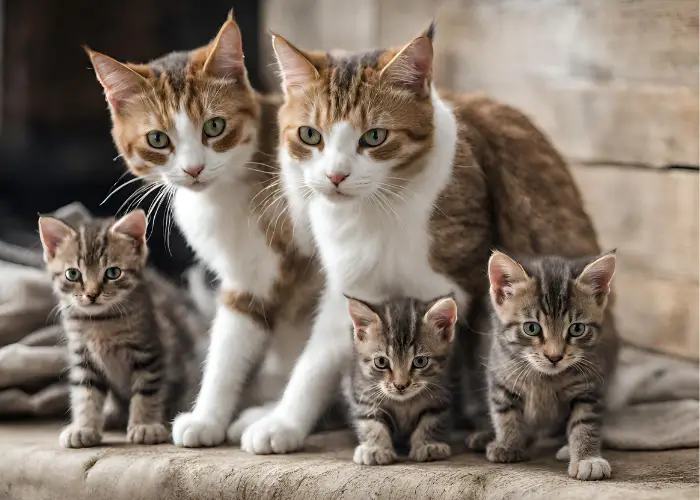
Conclusion
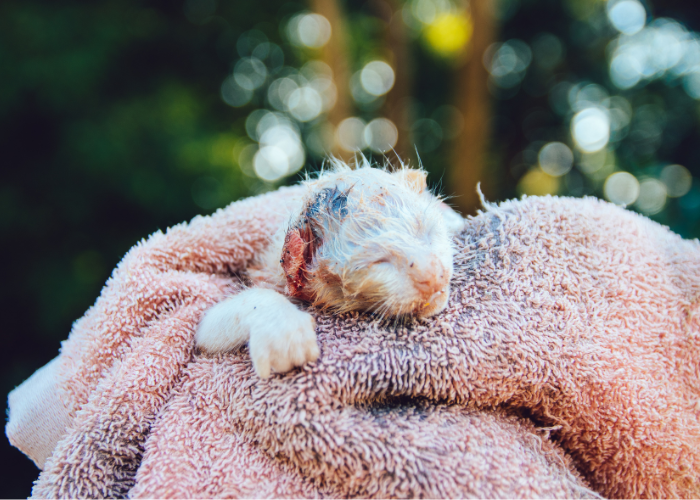
While the idea of feline infanticide can be unsettling, it’s essential to understand that it is a behavior grounded in a cat’s instincts and survival mechanisms.
Such behavior is often a response to environmental stressors, health issues, or instinctual drives, rather than a lack of maternal care.
For cat owners, awareness and understanding of these triggers are crucial.
Proactive measures, such as providing a calm and safe living environment, ensuring adequate health care, and monitoring for signs of stress or illness, can significantly reduce the risks.
By taking these steps, we can create a nurturing environment that supports the well-being of both mother cats and their kittens, fostering a safe and harmonious household for our beloved feline family members.
Related Questions:
Do cats kill their kittens if humans touch them?
It’s a myth that cats will kill their kittens if humans touch them. Cats are generally good mothers and understand that humans interacting with their kittens are not a direct threat.
However, excessive handling or stress can lead to other issues, so it’s always wise to be cautious and respectful when interacting with newborn kittens.
Do female cats kill other kittens?
Female cats can sometimes kill kittens that are not their own, especially in situations involving stress, territorial disputes, or limited resources.
This behavior is more common in overpopulated or stressful environments, such as feral cat colonies, where competition for resources is high.
Do cat dads love their kittens?
Male cats, or ‘cat dads,’ do not typically exhibit the same nurturing behavior as mother cats. Their involvement with kittens can vary widely, from indifferent to affectionate.
However, male cats do not generally display the same level of parental care as females. They can even threaten the kittens in certain situations, particularly in wild or feral populations.
REFERENCES:
- Veronesi, M. C., & Fusi, J. (2022). Feline neonatology: From birth to commencement of weaning – what to know for successful management. Journal of Feline Medicine and Surgery. https://doi.org/10.1177/1098612X221079709
- Vitale, K. R. (2021). The Social Lives of Free-Ranging Cats. Animals : An Open Access Journal From MDPI, 12(1). https://doi.org/10.3390/ani12010126
